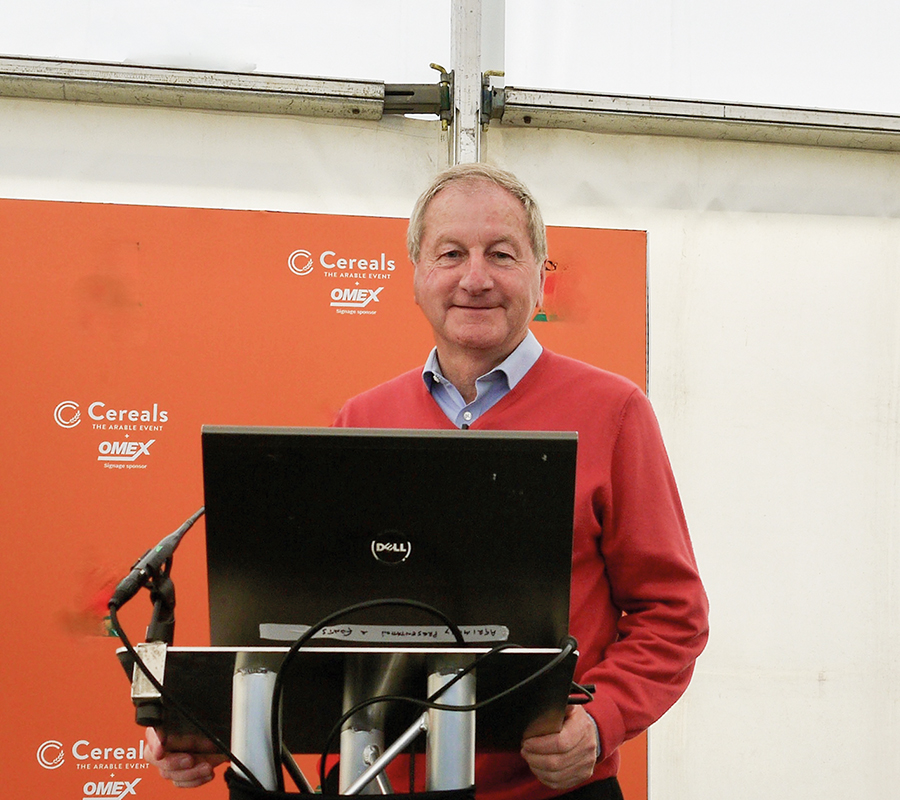Embracing the future of crop breeding
10th July 2024
Experienced wheat breeder Bill Angus, spoke at the Cereals seminar: ‘Regenerative agriculture and the future of crop breeding’.

During his talk, Mr Angus set out an agenda to embrace this opportunity for growers, offering the following points:
There is no shortage of genetic variation. It is a myth that there is a shortage and breeders are continually contributing to the process. Walk around any UK breeding programme and the diversity is huge. The UK has the most competitive wheat breeding environment in the world – we should not underplay this.
The process needs to be led by AHDB. We breed for this – no Recommendation, no income stream. The fact that we are not exploiting the wide range of genetic material that we have is down to the prescriptive nature of the system. We need more trials, better trials and more regional and agronomic trials but with the same budget – leaner, meaner and more efficient.
I do not believe that so-called ‘heritage varieties’ have much to offer. The traits that we need now – water use efficiency, varietal differences in low tillage situations, differences in rooting morphology, competitive effects in weed situations etc – are likely to be complex and multi gene and unlikely to be characterised, let alone assessed for their genetic make-up, for a long time.
We need to fully engage with the rest of the world. We have world beating wheat research with some £200 million spent over the last 10 years. Yet nothing has reached the marketplace – and by that I mean a farmer’s field. There is no BBSRC fingerprint on any field in the UK – this needs to change. By comparison, look at what CIMMYT (The International Maize and Wheat Improvement Center based in Mexico) is doing. It breeds for the developing world for countries and climates where they do not have the luxury of chemical inputs to get them out of trouble. And note that, despite the name, CIMMYT is not just wheat and maize.
We need a national phenotyping centre. We are in a hurry to be effective, and whilst do we need long term research, more urgently we need short term impact. This could be a ‘virtual centre’ with a strategic view and work platforms delegated to either the private or public sectors – or preferably public/private partnerships. Our current approach is fragmented and pitches institute against institute.
Finally, regenerative agriculture will not be for everyone. Sustainable intensification must be an option – we should release the potential of our excellent science base, world class breeding and best farmers in the world to produce more to help reduce reliance on imported food.
Read more arable news
